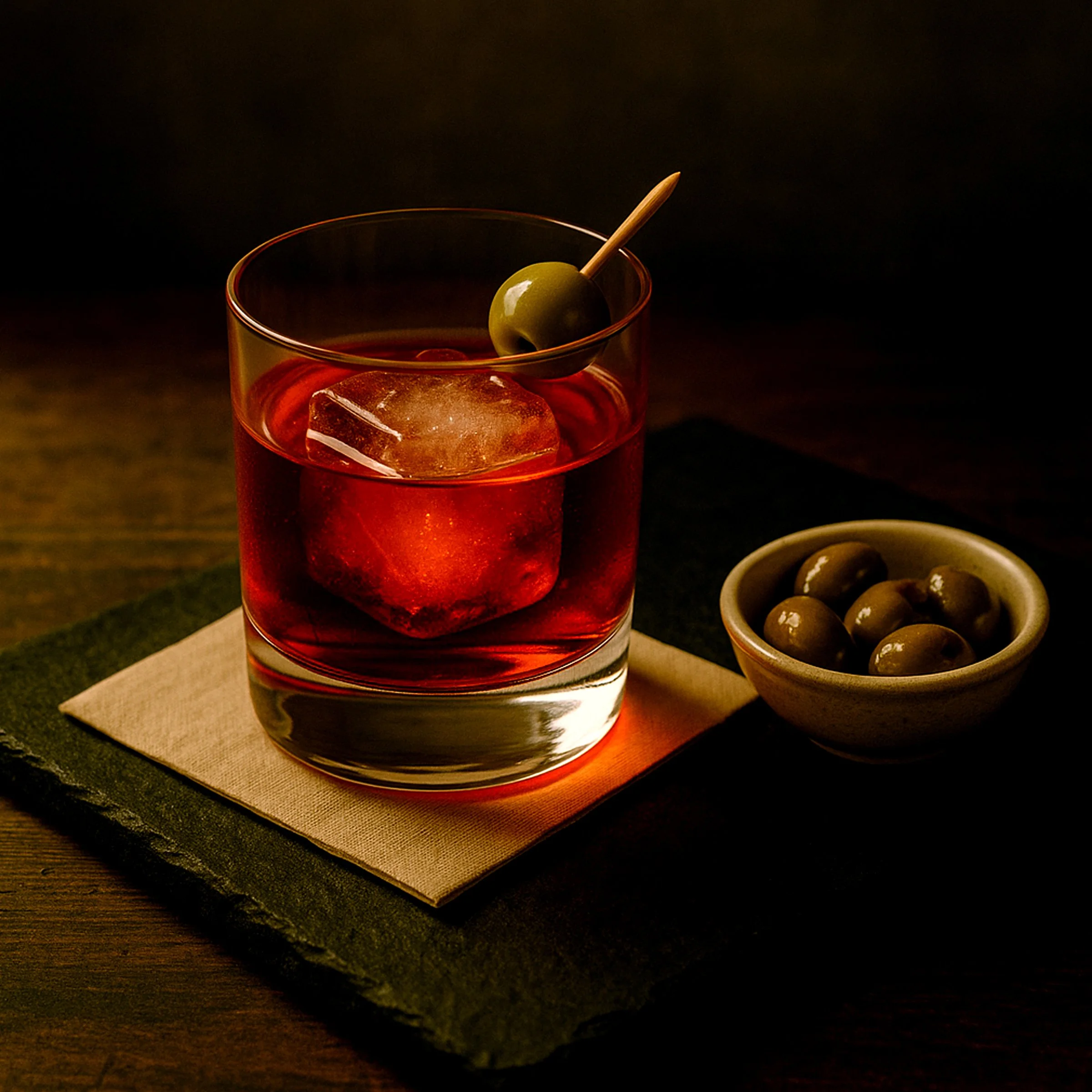VERMOUTH
Infused Tradition, Cocktail Foundation
Vermouth is a fortified, aromatized wine flavored with a mix of herbs, roots, and botanicals—lightly sweetened and essential to classic cocktail structure. From dry French styles to sweet Italian reds and modern craft expressions, vermouth brings complexity, acidity, and a subtle herbal backbone to the glass. Whether poured into a Martini, Manhattan, or Spritz, vermouth plays the quiet but crucial role of balance: lifting spirits, softening edges, and layering flavor.
Key Characteristics
Vermouth is made from a neutral or lightly aromatic base wine, fortified with grape spirit, then infused with botanicals. Styles vary by sweetness, color, and botanical mix.
Style
Aromatized, fortified wine flavored with botanicals and lightly sweetened
Key styles include: dry (white), sweet (red), blanc/bianco, and rosé
Body
Light to medium
Texture
Sleek, herbal, slightly oily or crisp depending on style
Primary Botanicals
Wormwood (required), gentian, cinchona, citrus peel, chamomile, clove, cardamom, juniper, thyme, coriander, angelica
Typical Flavors
Herbs, orange peel, vanilla, dried flowers, baking spice, bitter root, green apple, caramel, subtle sweetness or salinity
Origin & History
Vermouth originated in northern Italy and southeastern France in the late 1700s, evolving from medicinal wines infused with bitter herbs. Turin and Chambéry became style-defining centers—Italian vermouths typically richer and sweeter; French vermouths drier and more delicate. Vermouth became central to 19th-century cocktail culture in America and Europe and remains a defining component in aperitivo and bar programs worldwide.
How It’s Made
A base wine is fortified with grape spirit and infused with botanicals (often through maceration, distillation, or both). Sugar or caramel may be added for sweetness and color. Most are bottled between 15–18% ABV.
Notable Styles
A base wine is fortified with grape spirit and infused with botanicals (often through maceration, distillation, or both). Sugar or caramel may be added for sweetness and color. Most are bottled between 15–18% ABV.
Notable Styles
Grouped by sweetness and color, each has distinct cocktail roles:
Dry Vermouth
Pale and crisp; essential in Martinis, Bamboo, and light spritzes (e.g., Dolin Dry, Noilly Prat)
Sweet (Red) Vermouth
Richer and more spiced; used in Manhattans, Negronis, and Americanos (e.g., Carpano Antica, Cocchi di Torino)
Blanc/Bianco Vermouth
Clear and sweet; softer, floral, and versatile in spritzes or low-proof cocktails (e.g., Dolin Blanc, Martini Bianco)
Rosé Vermouth
Modern, pink-hued, and fruit-forward with light bitterness; ideal for spritzes and aperitifs
Cocktail Pairings
Vermouth is a pillar of the classic cocktail canon and a powerful tool in low-ABV and aperitif builds.
Classic Cocktails
Martini, Manhattan, Negroni, Vesper, Rob Roy, Bamboo, Americano
Modern Mixes
White Negroni, Vermouth Spritz, Bianco Highball, Rosé & Tonic, Low-ABV Boulevardier
Food Pairings
Vermouth pairs beautifully with salty snacks, charcuterie, and fresh herbs. A natural fit for aperitivo hour.
With Savory
Anchovies, olives, grilled artichokes, aged cheese, herbed nuts, salumi
With Cheese
Sheep’s milk cheeses, alpine cheese, aged gouda, fresh chèvre
With Dessert
Sweet vermouth with dark chocolate; blanc styles with citrus tarts or almond cookies
How to Serve It
Glassware
Coupe, wine glass, or rocks glass depending on service
Temperature
Serve chilled or over ice. Always refrigerate after opening to maintain freshness and structure
Storage
Refrigerate after opening. Best used within 4–6 weeks for peak flavor. Unopened, store in a cool, dark place
Fun Fact
The word “vermouth” comes from the German wermut, meaning wormwood—a mandatory ingredient that gives the category its bitter, aromatic signature.
Try This If You Like
Low-ABV cocktails
Aperitifs with citrus or herbs
Savory or mineral white wines
Spritzes and sessionable drinks
Amari with lighter profiles
Recommended Producers
These houses exemplify the diversity and craftsmanship of vermouth, offering refined expressions that balance botanicals, sweetness, and structure across styles.
Dolin
A historic French producer from Chambéry, renowned for elegant, nuanced vermouths like their Rouge and Blanc, perfect for both classic cocktails and aperitif sipping.
Maurin
A traditional French house crafting crisp, herbaceous dry vermouth with clarity and depth, ideal for martinis and savory pairings.
Recommended Pours
Dolin - Sweet Vermouth Red — A classic French sweet vermouth with notes of dried fruit, warm spice, and a lightly herbal, elegant finish.
Dolin - Vermouth Blanc — A delicately sweet white vermouth offering floral aromas, citrus peel, and gentle alpine herbs.
Maurin Dry Vermouth — A crisp and refined French dry vermouth with green herbs, citrus, and a clean, slightly bitter finish.




